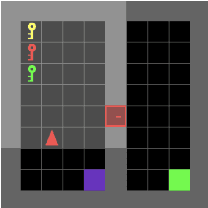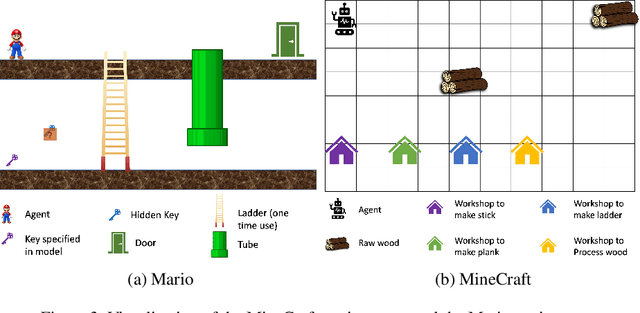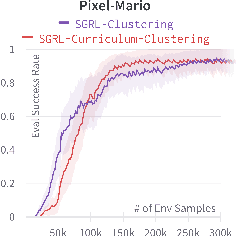Leveraging Approximate Symbolic Models for Reinforcement Learning via Skill Diversity
Paper and Code
Feb 06, 2022



Creating reinforcement learning (RL) agents that are capable of accepting and leveraging task-specific knowledge from humans has been long identified as a possible strategy for developing scalable approaches for solving long-horizon problems. While previous works have looked at the possibility of using symbolic models along with RL approaches, they tend to assume that the high-level action models are executable at low level and the fluents can exclusively characterize all desirable MDP states. This need not be true and this assumption overlooks one of the central technical challenges of incorporating symbolic task knowledge, namely, that these symbolic models are going to be an incomplete representation of the underlying task. To this end, we introduce Symbolic-Model Guided Reinforcement Learning, wherein we will formalize the relationship between the symbolic model and the underlying MDP that will allow us to capture the incompleteness of the symbolic model. We will use these models to extract high-level landmarks that will be used to decompose the task, and at the low level, we learn a set of diverse policies for each possible task sub-goal identified by the landmark. We evaluate our system by testing on three different benchmark domains and we show how even with incomplete symbolic model information, our approach is able to discover the task structure and efficiently guide the RL agent towards the goal.
 Add to Chrome
Add to Chrome Add to Firefox
Add to Firefox Add to Edge
Add to Edge